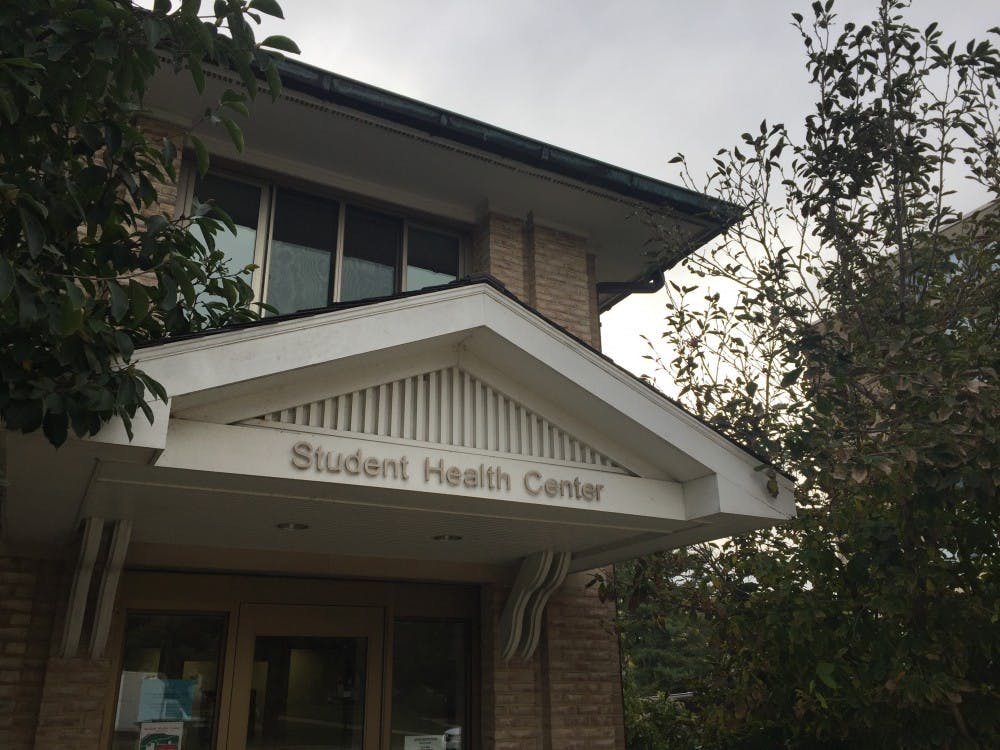A student petition to increase access to emergency contraception at American University seeks a vending machine stocked with the morning-after pill to eliminate the stigma students often feel when seeking out sexual health services on campus.
Sophie Macaluso, a junior in the School of Public Affairs, started the petition urging the University to install a vending machine stocked with emergency contraception on campus in October. Macaluso said she was inspired to take on this project while serving as a policy and political intern at National Abortion Rights Action League Pro-Choice Maryland over the summer when the state repealed a ban on the sale of over-the-counter medications in vending machines.
“I was just reading different articles about students across the country who had done similar things and was like, ‘Oh, this is kind of doable,’” she said. “It’s just one vending machine, and it would increase access by a lot.”
Currently, the University offers Plan B at the Student Health Center for $10 and Ella for $30, plus a visitation fee.
In an email to The Eagle, University spokesperson Elizabeth Deal affirmed the Student Health Center’s commitment to providing students with sexual health services but wrote that the administration does not have any concrete plans to move forward with Macaluso’s initiative at this time.
“AU is committed to providing a full range of contraceptive services to students, including Plan B, as well as Ella, which is designed for women with a higher BMI. The Student Health Center has offered these methods to patients as soon as available to the Center,” Deal wrote. “The SHC is dedicated to women’s health and offers counseling for contraception methods, along with prescriptions for contraception medications … The appropriate offices will continue to assess this request, though at this time there are no plans to install Plan B vending machines on campus.”
Although Macaluso said the Health Center is a great option for students who need to obtain emergency contraception during its hours of operation, she believes that having a 24-hour vending machine available to students would increase accessibility.
“The reason for the vending machine is to make it accessible all the time and also to take the third party or take the middleman out of it, take the health center out of it,” Macaluso said. “Not because they’re not a great service, but just because there’s no need to have a consultation or make an appointment and all these things.”
Macaluso said that she would also like to include pregnancy tests in the vending machine.
In the description of her petition, which has garnered over 150 signatures, Macaluso wrote that such a vending machine would also mitigate the common “feeling of embarrassment” associated with purchasing sexual health products.
Macaluso has been in touch with the vending machine manufacturer Vengo, which partnered with George Mason University to provide a similar service in 2018. GMU’s vending machine offers the My Way morning-after pill to students from 7:30 a.m. to 10 p.m. daily for $30.
At local retailers like Target and Walgreens, Plan B is typically sold at $49.99 per pill, according to the petition. Macaluso said that not only would the price reduction offered by the vending machine help more students access emergency contraception, it would also promote user privacy.
“Another thing surrounding price is the worry that [an emergency contraceptive purchase] is going to show up on a bank statement or something like that, but [with Vengo], it just shows up as a vending machine purchase,” Macaluso said. “It could have been you bought five bags of chips or something like that, which is really nice because that’s also something I know a lot of people are usually worried about when buying something like that on a credit or debit card that’s connected to someone’s parent’s account.”
Macaluso has been working with AU’s Health Promotion and Advocacy Center on this initiative. Together, they are trying to overcome obstacles associated with installing the vending machine on campus.
Natalie Price, a peer health educator with HPAC, said the biggest barrier in the process so far has been funding, mainly the costs of buying the vending machine and keeping it stocked with supplies.
“There are inclusive mini-grants that we’ve considered applying for, and HPAC has been familiar with these grants,” she said. “We were awarded an inclusive mini-grant packet in 2019 for self-care circles, so it would be really great if we could get another one and be able to continue to fund this service.”
Price added that location is also an important factor when considering vending machine placement. She and Macaluso are looking into spaces that are larger than the HPAC office, accessible to students 24 hours a day and separate from most foot traffic to allow for some user privacy, Price said.
Macaluso also met with Dining & Auxiliary Services in December to discuss logistical details about what the University would have to do to add products to open a new vending machine or add products to an existing one.
In a follow-up to The Eagle, Macaluso wrote that she is planning to meet with University health officials to discuss additional options for increasing contraception accessibility on campus, including waiving the copay on Plan B at the health center and allowing students to access emergency contraception without an appointment.
According to Macaluso, a desire to create an equitable, sex-positive environment for all students motivates this work.
“You may be going home to a state or a family that’s not super happy or excited about emergency contraception or reproductive justice,” Macaluso said. “So having something on campus that is affirming and easy to get and has no barriers or possibility for discouragement or embarrassment accessing it is really important.”
apritchard@theeagleonline.com and kcorliss@theeagleonline.com





